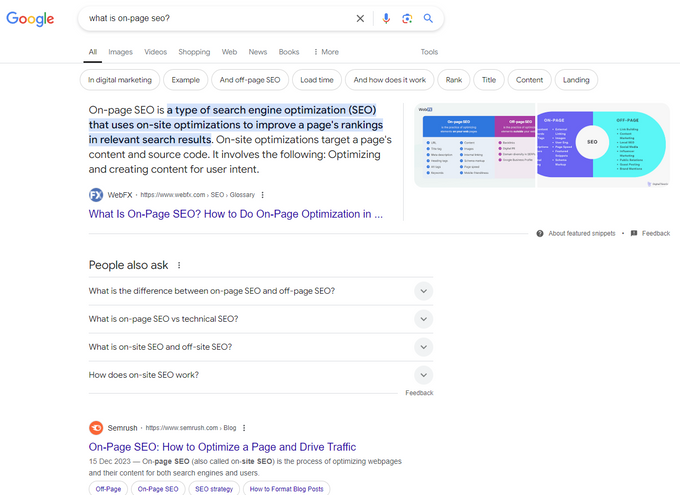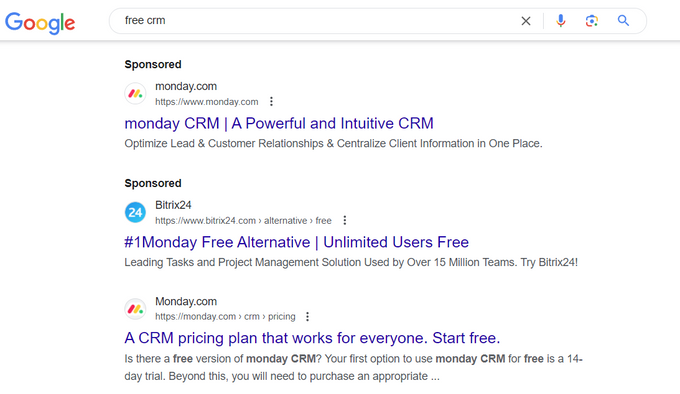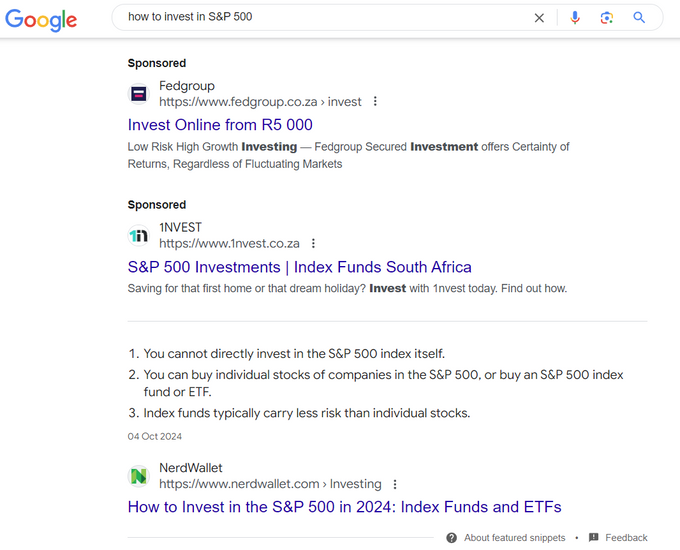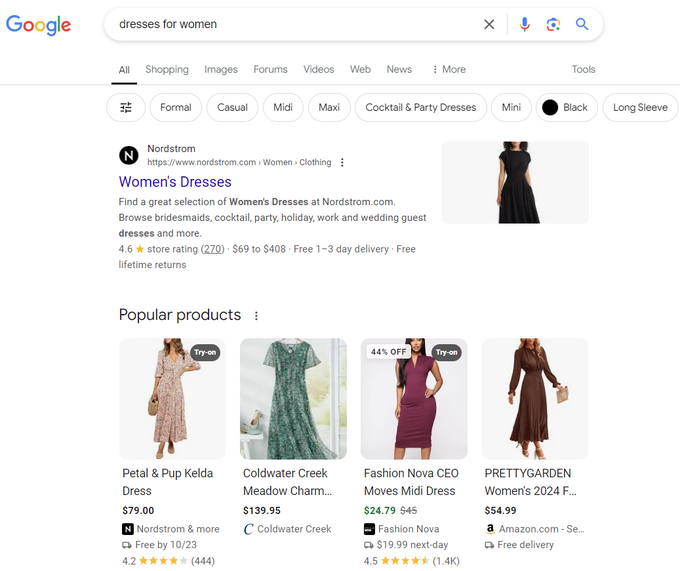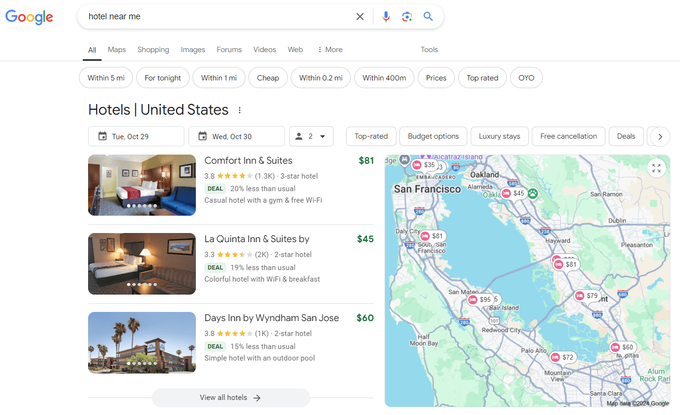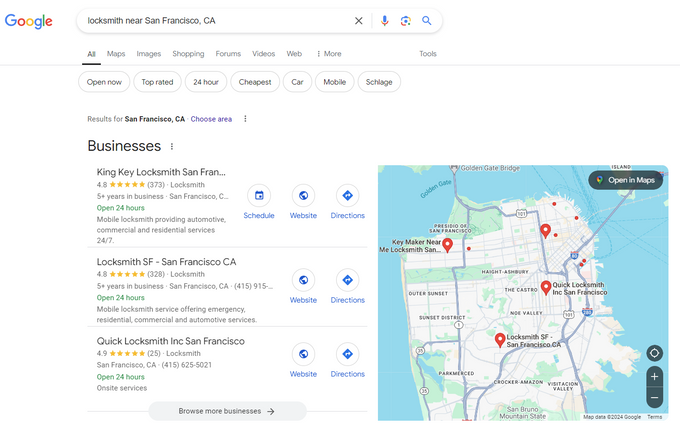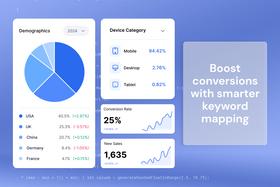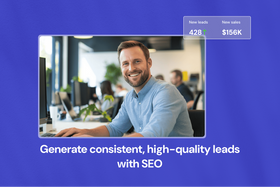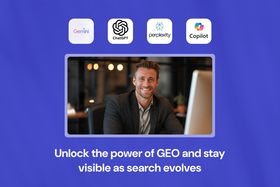SEO vs. SEM: Which strategy delivers better ROI?
Learn when to use SEO, SEM, or both to drive traffic and maximize ROI.
Updated October 18, 2024
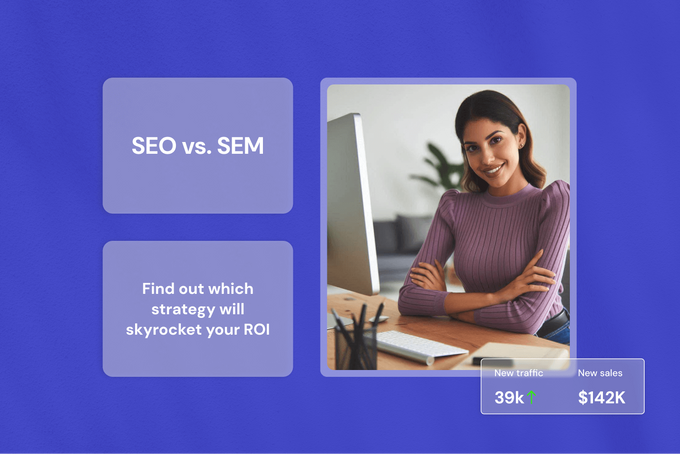
AI Summary
SEO (Search Engine Optimization) and SEM (Search Engine Marketing) rely on the same channel: search. The difference is that SEO refers to optimizing a website to rank in organic search results, while SEM involves getting traffic from both organic and paid search.
When it comes to marketing, you have to choose the channels that work best for your specific website. So, let's explore the differences between SEO and SEM to help you decide where to focus your efforts.
Key takeaways
- PPC is much faster than SEO, making it ideal for when you're experimenting and unsure of what will convert.
- SEO is a long-term game that works best when you know your product and how to convert users.
- While almost every business can use both SEO and SEM, it's important to do a deep analysis to decide where to invest.
What is SEO?
SEO is the process of optimizing a website for search engines—in most cases, Google—to improve rankings and attract unpaid organic traffic.
SEO can be split into the following categories:
- On-page SEO: Creating high-quality content that includes the proper keywords, headings, internal links, etc., in order to rank in search results.
- Off-page SEO: Signals outside of your website that show search engines your website has authority and is trustworthy, such as backlinks from reputable sites and high domain authority.
- Technical SEO: Optimizing the technical aspects of a website, such as site speed and schema markup, to ensure search engines can crawl and index your pages.
What is SEM?
SEM involves getting traffic from search engines through organic and paid search results. This includes SEO and PPC (pay-per-click).
What is PPC?
In the context of SEM, PPC is a type of advertising where you pay each time someone clicks on one of your ads in search results.
PPC generally involves:
- Bidding: Setting the amount you're willing to pay for each click on your ad.
- Audience targeting: Deciding who you want your ads to reach based on specific criteria.
- Ad creation: Writing compelling ad copy to get clicks and conversions. Google assigns a Quality Score based on the quality and relevance of your ad and landing page. Ads with high Quality Scores cost less and get better ad positions.
» Find out if you should invest in SEO or PPC.
SEO vs. SEM: How long does it take to see results?
An SEM approach that focuses only on PPC is much faster than SEO. Once Google shows your ad to users, you can expect traffic to come in almost immediately.
SEO, on the other hand, is a long-term commitment. It can take roughly 3-6 months to see the effects of your SEO strategy. If you choose to prioritize SEO, you need to start early, even if you have a small budget. Start slow and begin building your online reputation and topical authority as soon as you can.
» Discover proven techniques to improve SEO ROI.
SEO vs. SEM: What are the costs?
SEO is typically cheaper in the long run, but it requires significant time, effort, and resources upfront, with no guarantee your pages will rank. Plus, it's not easy to convert users from SEO.
With a PPC-focused SEM strategy, you pay for every click. The more people click on your ad, the more money you have to spend. Not to mention, acquisition costs are always rising, so it becomes very expensive for businesses to acquire customers with SEM. Still, you know that you'll see results quite quickly.
The problem with PPC is that traffic stops as soon as your budget runs out. But with SEO, you'll keep getting traffic without having to invest much more. In a nutshell, PPC is a cheaper short-term strategy, and SEO is a cheaper long-term strategy. So, it's up to you to decide which best suits your needs.
Should you invest in SEO or SEM?
SEO and SEM both target search, but within this channel, there are different types of searches—informational, transactional, commercial, and navigational. Each one requires a different type of content or advertising.
The key is to analyze your content, website, and industry and decide what you should focus on. You need to understand which type of search your business can use to achieve ROI while also considering factors like user intent, competition, customer lifetime value, and the value of your product.
» Learn how to forecast SEO ROI.
Which industries should invest in SEO or SEM?
Every website should prioritize technical SEO to ensure Google indexes its pages. If people are actively searching for your product, you should consider using both SEO and SEM. If you sell a new product people aren't searching for yet, a different channel like influencer marketing or social media might be more effective.
Let's look at what works in some more specific industries.
Informational industries
Almost every website that does SEM can do SEO if they're in an informational industry because there's a lot of search volume and conversion opportunities. Informational industries include:
- Higher education
- Finance
- Healthcare
- Fitness
- Nutrition
- Technology
- Legal services
There are certain informational industries, such as online therapy and website builders, that used to be controlled by affiliate websites, which made it very difficult for brands to rank. Now, Google is prioritizing brands. So, if you're in any one of those industries, you should definitely do SEO and SEM.
» Book a consultation to start an ROI-driven SEO operation.
Fashion
In fashion, there's less need for informational content as people mainly want to see images of specific items like dresses, shirts, or shoes. Overall, SEM should be your primary focus in this type of industry because users are actively searching for these products. In terms of SEO, you can optimize your category pages, as that's typically what users want to see when searching for fashion items.
Local businesses
Local businesses can benefit from both SEO and SEM. Local SEO helps them appear in search results for nearby customers by optimizing their website and Google Business Profile. SEM, on the other hand, can help target local searches with paid ads.
Emergency services
Emergency services, such as locksmiths and moving companies, can do SEO, but it's much more competitive. It's also more difficult because there's not a lot of content that converts and supports your services. When someone searches for a locksmith, they need one immediately, so it's better for them to find one on a comparison site or directly from Google. For businesses in these industries, it's best to do local SEO and SEM.
» Talk to an SEO expert to find the best strategy for your business.
Combine SEO and SEM for the best results
These days, marketing is competitive all over, and one strategy isn't necessarily easier than another. Unless you're in an industry like fashion, the best strategy is a combination of SEO and SEM. Start with SEM, focusing on PPC to shape your strategy and get quick results, then invest in SEO for sustainable long-term growth.
